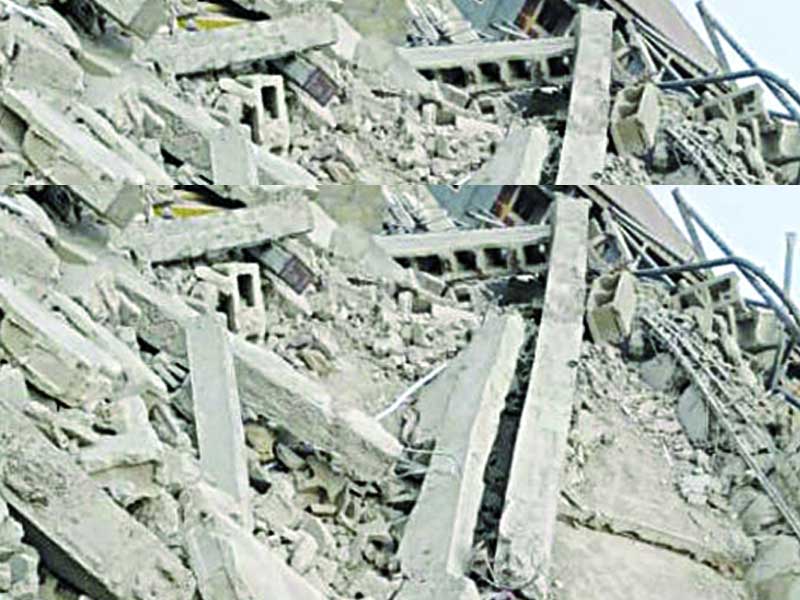The recent collapse of a three-storey building under construction at No. 10 Oremeta Street, Ojodu, Lagos, has been described as a tragic and avoidable disaster by the Building Collapse Prevention Guild (BCPG), Ojodu Cell. The incident, which occurred on Saturday, April 19, 2025, claimed seven lives and left 13 others injured.
In a strongly worded statement signed by BCPG Ojodu executives—Coordinator, Surveyor Abiodun Adegoke; General Secretary, Architect Dom Ibeh; and Public Relations Officer, Builder Femi Ishola—the guild expressed profound sorrow over the tragedy and blamed the collapse on the failure to implement critical recommendations made following a similar incident in the same neighborhood over a decade ago.
A Preventable Tragedy
According to the Lagos State Emergency Management Agency (LASEMA), seven bodies were recovered from the rubble, and 13 survivors were taken to hospitals with varying degrees of injury. “This collapse, with its accompanying loss of innocent lives, was entirely preventable,” the BCPG stated. “It has reopened old wounds and reflects our collective failure to act on past lessons.”
The Guild drew a striking comparison to a 2013 building collapse at No. 15 Bashiru Street, Ojodu—just 150 meters from the current site. That incident, which involved a four-storey structure under construction and resulted in one death, prompted a flurry of recommendations by BCPG and the Lagos State Ministry of Physical Planning and Urban Development. However, BCPG says those recommendations were never fully implemented.
Among the lessons from the 2013 incident were:
The dangers of occupying buildings still under construction.
The structural risks of incrementally adding floors to old structures without reassessment.
The need for structural integrity testing for buildings exposed to weather over long periods.
Revalidation of construction permits for prolonged or delayed projects.

Despite these recommendations, BCPG notes that the collapsed Oremeta Street building suffered similar issues: prolonged construction, exposure to the elements, unauthorized occupancy of lower floors as a restaurant and bar, and construction resumption without necessary reassessments.
Regulatory Oversight Questioned
The guild expressed dismay that, despite the presence of the Lagos State Materials Testing Laboratory within the Ojodu area, structural tests were either not conducted or ignored. “When a building project is dormant for over five years, it is deemed an abandoned project, requiring fresh approvals and safety checks before work resumes,” the statement emphasized.
The group also raised concerns about enforcement, pointing to the example of the 2013 Bashiru Street site. A two-storey building has since been erected at the location, prompting questions about compliance with Section 74 of the Lagos State Urban and Regional Planning and Development Law (2010), and Section 25(4) of the Lagos State Building Control Agency (LASBCA) Regulations (2019)—both of which stipulate the forfeiture of any collapsed building’s land to the state.
“Was a valid building approval obtained for the new structure on what should have been government-confiscated land?” the Guild asked. “This revelation warrants immediate investigation.”
Call to Action
The BCPG urged the Lagos State House of Assembly to go beyond legislation and ensure enforcement. “The Assembly must address the persistent gap between policy formulation and implementation,” the guild said, calling for thorough investigations into both the Oremeta Street collapse and all previous incidents in Ojodu and across Lagos.
As part of its oversight, the Assembly is being urged to:
Investigate the circumstances of the Oremeta Street collapse.
Audit collapsed building sites across Lagos.
Enforce forfeiture laws on lands where collapses occurred.
Hold regulatory agencies accountable for enforcement lapses.
The guild also offered to provide the Assembly with a comprehensive list of past building collapse locations in Lagos.
“Integrity is the hallmark of building safety,” the statement concluded. “The safety of lives and property must no longer be compromised by inaction or negligence.”



